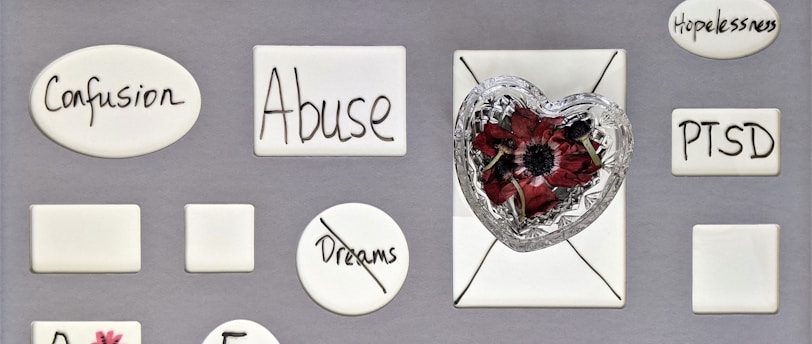Neurodivergence and Trauma
A blog exploring the correlation between Trauma and Neurodivergence.
Jodie Mainstone
5/8/20242 min read


What is it like growing up Autistic, ADHD or AUdhd in a world that often sees you as broken or a problem?
For many people who are neurodivergent, this experience can be deeply painful and even traumatic.
If you’re autistic, ADHD, or both, you may have spent much of your life feeling like you don’t quite fit in. You might have been told you’re too loud, too quiet, too distracted, too emotional or not trying hard enough. Often, the message you receive is that something about you needs fixing, when really you are just wired differently.
This kind of constant misunderstanding and feeling “not enough” can leave lasting wounds. It’s more than frustration or feeling out of place and it can create real trauma.
Growing up neurodivergent in a world designed for neurotypical people means living with a lot of challenges that others might not see. You may have been expected to make eye contact when it was uncomfortable, to sit still when your body needed to move, or to hide your true self just to avoid trouble.
You might have learned to mask your feelings and behaviours so well that it left you exhausted, constantly monitoring yourself to avoid judgment or punishment. This pressure to fit in, often without the support you needed, chips away at your sense of safety and belonging.
Trauma isn’t always about one big event. For many neurodivergent people, it’s about the small, repeated moments of not being seen, heard, or accepted over and over again.
These moments can add up to feelings of anxiety, depression, shame, and deep exhaustion. You might find yourself doubting who you really are or feeling disconnected from yourself because you’ve spent so long trying to be who others expect you to be.
It’s important to remember that you are not broken. Autism and ADHD are not flaws or defects. They are just different ways of experiencing the world, with their own unique strengths and challenges.
What causes pain and trauma is often the way society treats neurodivergence as something to be fixed, hidden or controlled rather than something to be understood and respected.
Healing doesn’t mean trying to “normalise” yourself or pretending to be someone you’re not. Healing means learning to accept and love yourself as you are, understanding your needs, and finding ways to live that honour your brain and body.
Therapy can be a place to start that healing. It can help you explore the ways you’ve been affected by years of masking, misunderstanding, and exhaustion. It can teach you tools to manage overwhelm and to connect with your true self in a kinder, more compassionate way.
You deserve to be seen, heard, and supported just as you are.

Therapy Enquiries
© 2025. All rights reserved.
Website by Avefinity
Supervision and Training Enquiries and Website











Mainstone Counselling Ltd is a company registered in England and Wales with company number 11338192. Registered Office 27 Avenue Mansions, Finchley Road NW3 7AX


